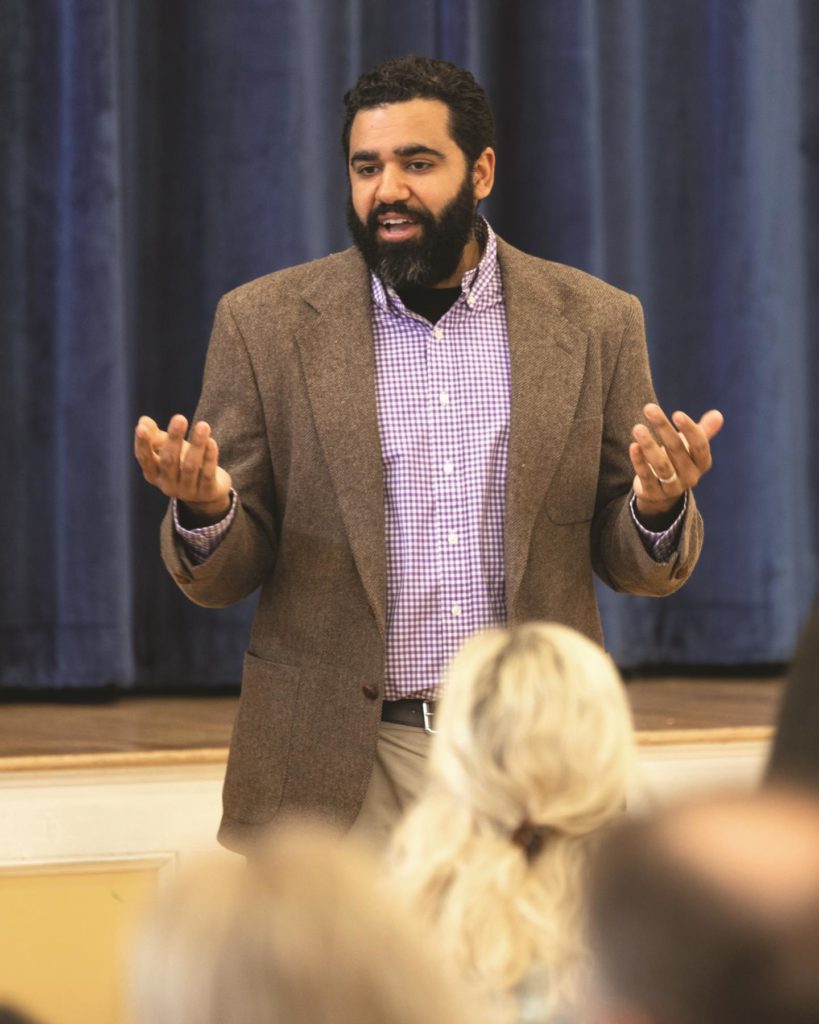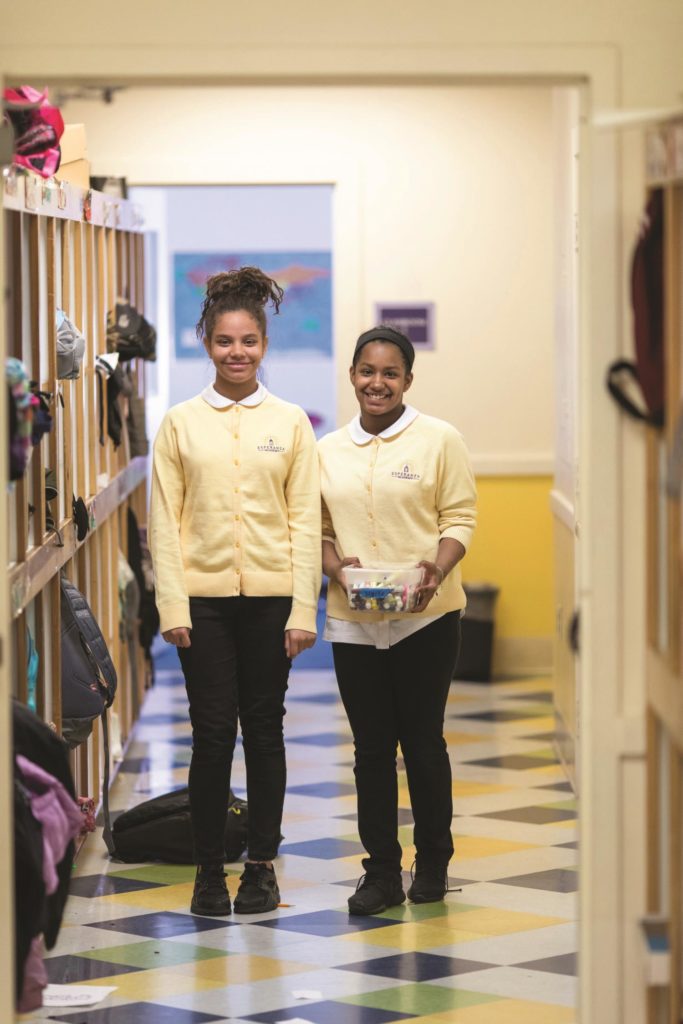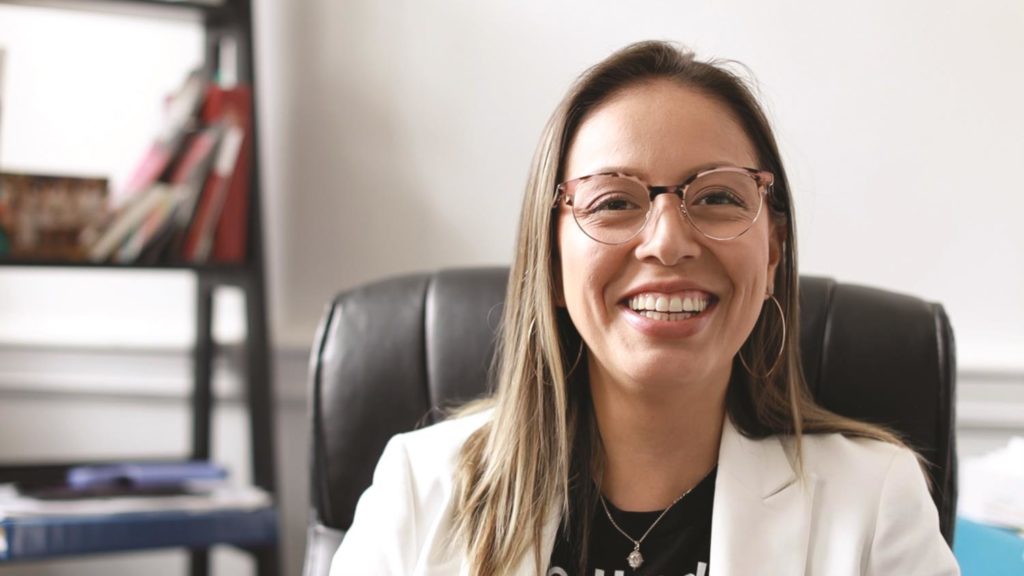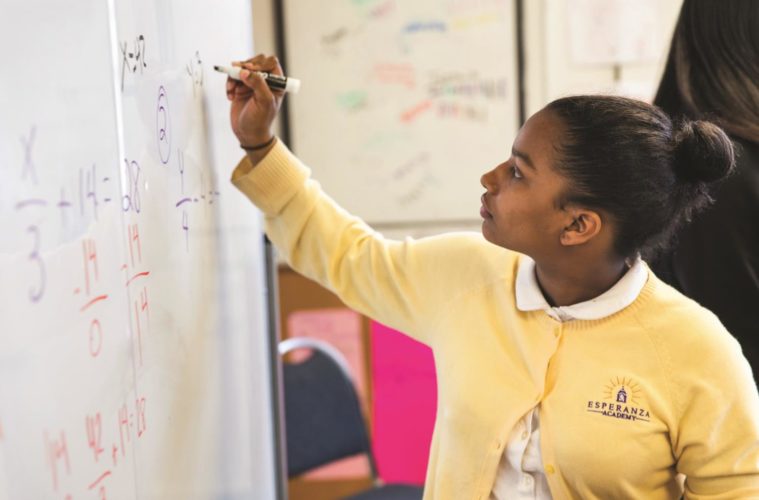On a warm spring day, Elianna Mejia and Jeneice Nuñez greet me at the front door of their middle school wearing crisp white collared shirts and black slacks. As Esperanza Academy ambassadors, Elianna and Jeneice are preternaturally poised, confidently shaking my hand before leading me on a tour through their school. We pass small classrooms filled with just a handful of students each, who are engaged in animated discussions. We peek inside the principal’s office, where a plaque reading “The Future Is Female” is perched at the edge of the desk. And we stop into Parish Hall, colorful with flags from around the world, where students gather for their daily morning meeting, study sessions, and special events.

Esperanza Academy is a tuition-free, lottery-based independent middle school for girls from lower-income Lawrence families that offers a potent combination of academic rigor and nuanced social support. It runs 100 percent on philanthropy from family foundations, corporate foundations, private donors, and other supporters.
At the time of our meeting, Elianna and Jeneice were just weeks away from graduating, after having spent four years in classrooms and study halls and on athletic fields with other girls from similar backgrounds—all lower income, all from Lawrence, mostly of color, and many first- or second-generation Americans.
That Esperanza offers a learning space for these girls to be freely and fully themselves—and recognize themselves in their peers—is a rare and beautiful thing, say members of its faculty. “That freedom? That’s what education is supposed to be,” says Jadi Taveras, Esperanza’s head of school.
It’s so rare that Taveras had never experienced it himself it until recently. He recalls a day when students were talking about the immigrant experience and laughing together about their families as they discussed the Sandra Cisneros novel The House on Mango Street. “They were talking about all the nuances and quirks of their parents. Of their moms and their aunts and their grandparents. Of these abuelas doing these funny, weird things,” Taveras says. “For me, at the age of 35, it was the first time I was in a classroom where everybody can relate, where I could relate to everyone’s stories about their parents. For these girls, that’s happening for them in fifth grade.”

There’s also freedom in being surrounded by only girls, says Kristina Dolce, Esperanza’s lead English teacher. “When you come into our classrooms, every single person who’s raising their hand is a girl—in math, in science, in English. There’s a lack of fear of judgement,” she says. “There’s a freedom to explore ideas and issues that are scary to talk about in front of boys,” from getting their period to systemic sexism.
She dismisses the worry that such an environment is “unrealistic;” there are still men in their lives. “It’s OK if, for four years, you have kind of an oasis to be together and explore and have that little spot of safety at a time when your body’s changing and it can feel really scary,” she says.
Esperanza Academy serves just 60 students—15 per grade—in grades five through eight, and educates them in the Episcopal tradition. It opened in 2006 thanks to a partnership between Christ Church of Andover and Grace Church of Lawrence. “It was founded at a time when Lawrence and Andover had the largest wealth disparity gap out of any two neighboring towns in the country,” Taveras notes.
Indeed, Lawrence and Andover’s proximity to one another offers a stark snapshot of America’s income inequality crisis, which rears its head in many ways, including in students’ educational experience. Taveras offers one potent example: hunger and food insecurity. “We often forget about the importance of food and nutrition in poverty,” Taveras says. “If a kid is not eating well or not getting the proper nutrition right before a school day starts, we know that that has a direct correlation with attention and behavior.”
Perhaps a child’s gnawing hunger results in disruptive behavior, and she’s continually disciplined for acting out. That kid gets labeled—class clown, troublemaker—and those labels follow her through school. “There’s a narrative attached to the child that the child starts to believe: I’m a bad student.” Taveras says. “It’s a self-fulfilling prophecy that can oftentimes limit the child’s ability to succeed. And all of those are systemic issues that are underlying what’s happening.”
Eventually, the child risks undereducation and underemployment in her own adulthood, and the whole cycle starts again.
That’s why Esperanza Academy’s overall vision is about breaking that cycle. “It isn’t about a particular job, a particular career path, or college,” Taveras says. “It’s about disrupting the cycle of poverty of families. And that happens by giving the opportunities to kids to succeed in whatever way that is right for them so their children grow up differently than they did.”
Instead of punishing a child for circumstances outside their control, Esperanza is sensitive to the “whole child,” and offers an extensive support system. For instance, the kids eat a snack right when they arrive in the morning, and Esperanza’s chef makes delicious and creative breakfasts and lunches. Esperanza’s extended-day format (7:30 a.m.-5:00 p.m.) and a multi-week summer session provide students with support from teachers as well as tutors, homework help, and extracurricular activities even while their parents work. “When we think about the whole student, we think about where the student is growing up, we think about the community, we think about the family,” says Viviana Cordero Garcia, director of graduate support.
Esperanza also makes a 12-year commitment to its students, providing support and guidance through high school and college. That might mean sending care packages to boarding school and college students; checking in with graduates via text or Instagram; or helping families complete complex financial aid applications for high school and college, which can be especially important for non-English-speaking parents. “We are trying to think about the kids when they come into fifth grade and who they’re going to be when they graduate from college,” Taveras says.

Elianna and Jeneice say Esperanza has changed them for the better, something they reflect on as they’re about to enter high school. Elianna says she “wouldn’t be the same person” without Esperanza, where she learned leadership and communication skills. Jeneice agrees, pointing to highlights ranging from the school’s little sister/big sister program, which pairs younger and older students in mentor relationships, to the recent class trip to Washington, DC.
“They just provide a lot of opportunities that not a lot of Lawrence students from public schools are able to have,” she says.
For more information, visit esperanzaacademy.org

